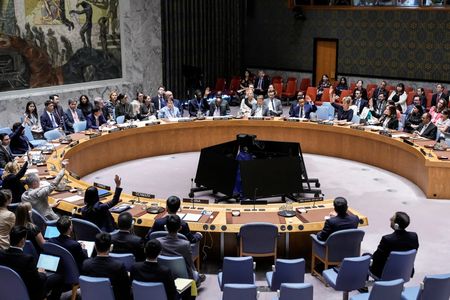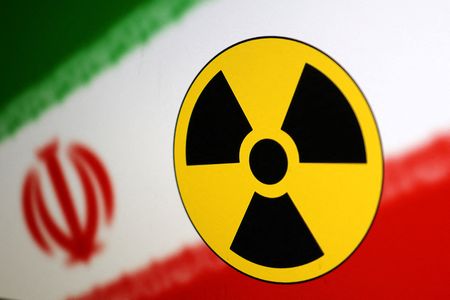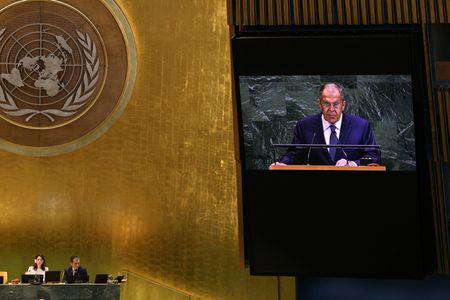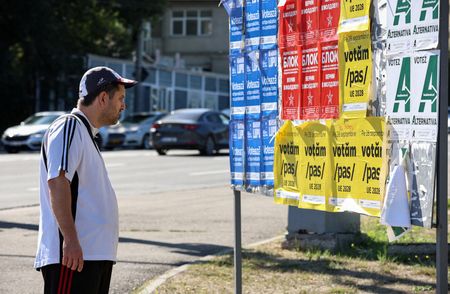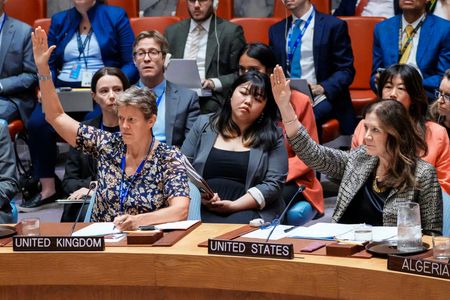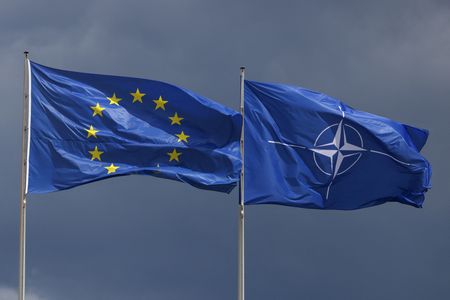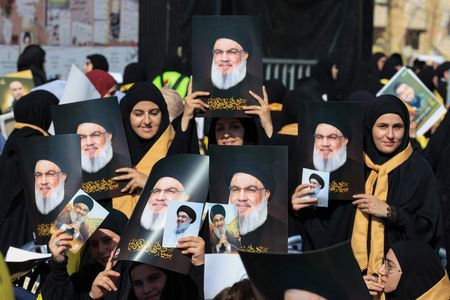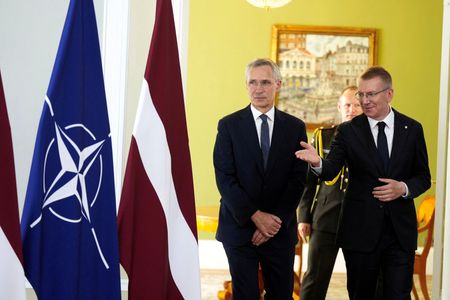By Parisa Hafezi, John Irish and Francois Murphy
UNITED NATIONS/VIENNA (Reuters) -The “snapback” re-imposition of U.N. sanctions on Iran lifted under a 2015 nuclear deal sends Western powers back to the drawing board on how to contain and monitor Iran’s nuclear programme, diplomats and analysts say.
European powers France, Britain, and Germany – known as the E3 – had hoped the threat of snapback would make Iran yield to demands such as quickly letting U.N. nuclear inspectors return to nuclear facilities bombed by Israel and the U.S. in June, and resuming talks with the United States on its atomic activities.
But despite a last-minute rush of diplomatic activity at the U.N. General Assembly in New York, the E3 said Iran had done too little for them to stop snapback going into effect on Sunday at 0000 GMT, a month after they set the 30-day process in motion.
“This snapback mechanism is the West’s last bullet. Once they pull the trigger, they’ll have nothing left,” a hardline Iranian lawmaker said in the dying hours of negotiations on condition of anonymity due to the sensitivity of those talks.
“The stick they’ve been holding over our heads — once it’s used, it’s gone. They won’t have any more leverage.”
US PLAYED ITS TRUMP CARD
Western diplomats argue that, on the contrary, the U.S. and E3 will have the leverage of offering to lift these and other sanctions. But getting sanctions lifted is an arduous process less likely to yield quick concessions like the ones the E3 had recently sought.
“The U.S. played its ‘trump card’ in bombing key Iranian sites. And while the nuclear programme has certainly been set back, it has not been eliminated,” said Eric Brewer of the Nuclear Threat Initiative think-tank.
“Iran is not willing to meet U.S. terms for a deal. But the U.S. still clearly needs a deal for any sustainable solution. So in many ways we’re back to where we started,” he said.
The sanctions snapping back require Iran to suspend all enrichment-related activities and ban imports of anything that could contribute to those activities or to the development of nuclear weapon delivery systems like ballistic missiles.
They will also re-impose an arms embargo and targeted sanctions on dozens of individuals and entities.
The 2015 deal between Tehran and major powers restricted Iran’s atomic activities in exchange for sanctions relief.
It worked as planned for two years until President Donald Trump pulled Washington out in 2018 and re-imposed U.S. sanctions. Tehran responded by rapidly expanding uranium enrichment to the point Israel and the U.S. said they had no choice but to bomb Iran’s atomic sites in June.
Western powers say there is no civilian justification for Iran’s advanced uranium enrichment, fearing it is moving towards nuclear weapons. Iran denies seeking the atom bomb.
IRAN PLANS TO RESPOND
With snapback kicking in, Iran has said it will retaliate diplomatically, indicating it might scale back cooperation with the IAEA even further just as Western powers and the IAEA are demanding answers on the status of its large stock of highly enriched uranium.
“If the snapback mechanism is triggered and sanctions return, we will definitely reconsider our relationship with the IAEA. Restrictions on inspections will certainly be tightened,” a senior Iranian official said shortly before it kicked in.
After Israel launched its bombing campaign, Iran’s parliament passed a law suspending cooperation with the International Atomic Energy Agency and requiring inspections to be approved by its Supreme National Security Council.
Iran and the IAEA announced an agreement this month that was supposed to pave the way towards a full resumption of inspections but there has been little progress since then.
E3 diplomats said they would return to what has been their strategy since 2003: a mixture of pressure and dialogue.
IRAN’S RISKY GAMBIT
In contrast to a decade ago, however, major powers are divided after events like the war in Ukraine, making it harder to pressure Iran into an agreement. Russia and China made a last-gasp attempt to avert snapback at the U.N. Security Council on Friday afternoon, which failed.
“Iran’s cooperation with the IAEA is already limited and could deteriorate further, but I don’t think it will take the leap to pull out of the NPT (nuclear Non-Proliferation Treaty),” one E3 diplomat said, adding that he did not think China or Russia would accept Iran rushing to the bomb. “And if they did, Israel wouldn’t.”
An Israeli official said Israel had no reason to renew strikes on Iran for now unless Tehran advanced its nuclear programme clandestinely, adding: “They know we are watching”.
The diplomatic stand-off appears set to enter a tense, drawn-out phase, with uncertainty over what Iran is doing on the ground likely to grow while IAEA inspectors are absent.
“For the Iranians, the nuclear programme’s growth was their key point of leverage before the war – now it is its opacity,” said Ali Vaez of the International Crisis Group.
“But it’s a risky gambit: If Iran attempts to revive elements of its programme and is detected despite the absence of (IAEA) inspectors on the ground, it will only fuel concern over its intentions.”
(Reporting by Francois Murphy, editing by Deepa Babington)

